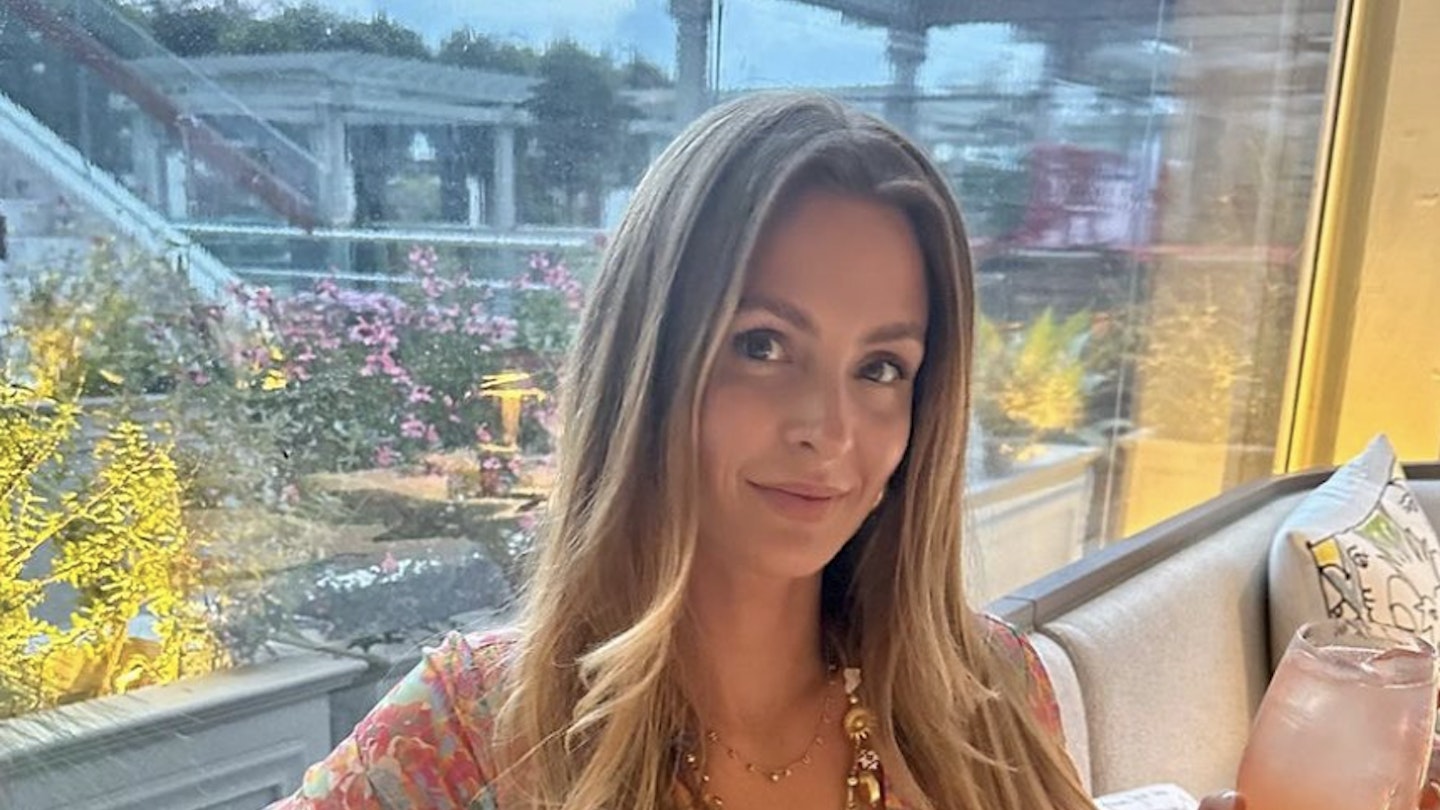Last week Made In Chelsea’s finest Millie Mackintosh hit a year since she last had a drink – and it’s been a journey.
‘There were a lot of emotions,’ she tells Grazia about how it felt to hit the 365-day marker. ‘A year ago to the day, I’d felt at rock bottom, I felt awful. It was slightly triggering, having that memory of how you felt the year before.’
That said, Millie says her sobriety has helped her establish new boundaries, being more present with her loved ones and saying a big ‘no’ to people pleasing.
She describes having a much ‘deeper understanding’ of her triggers, and adds that she's realised how interlinked her alcohol intake is with her anxiety levels.
‘Anxiety and alcohol really do not mix,’ Millie explains. ‘You’re adding alcohol in to try and numb those feelings of anxiety – and it’s like pouring lighter fluid on a flame.’ She says that she could only really start to heal from the ‘worst anxiety’ of her life by getting to the root cause, and that had to involve giving up drinking. This was because the opportunity to go for a drink to alleviate anxiety as a ‘temporary fix’ was actually creating an ‘unhealthy hamster wheel’, and it was time to jump off.
Once she’d jumped, it was all about navigating the social anxiety she felt without alcohol there as a lubricant for awkward conversations and small talk. ‘I felt like I’d forgotten how to make conversation,’ she says. ‘I think I find small talk really painful anyway. So you then realise that alcohol makes social situations seem maybe more fun than they actually are.’
She credits her partner Hugo Taylor for ‘staying nearby’ during social situations as she adjusted to being alcohol free: ‘He really looked out for me, I just needed someone to tell me “you can do this, you’re fine”’.
Of course, heavy drinking culture being as prevalent as it is – 24% of adults in England and Scotland regularly drink at levels that increase their risk of ill health – means that setting boundaries and talking to others about it has become a big part of Millie’s journey. She describes previously being ‘easily swayed’ by others when it came to drinking, but has become more used to having conversations around why she’s now making different decisions.
‘It definitely makes people uncomfortable, like they feel they need to justify their own drinking to you,’ she says. ‘I have found sometimes people will then talk about their own potential issues with drinking, you become a mirror to that for them.’
She adds that she’s really had to work on curbing the instinct to people please. ‘A big part was learning to not care as much what other people think,’ Millie says. ‘You can’t live to please other people – you have to put yourself first.’
While she admits going alcohol-free might have changed the dynamic of certain friendships, it’s made space for both making new ones and letting go of some old ones. ‘I probably have been excluded from certain things and I’ve made peace with that,’ she says, describing being able to connect ‘on a deeper level from day one’ with a sober friend.
Her deepest relationships have benefited from giving up alcohol, as well – Millie describes being more ‘present’, as well as having ‘a better understanding of other people’s emotions as well as my own’. She’s noticed the biggest different in her role as a mum to her two daughters Sienna and Aurelia.
‘I've got much better at not reacting when they're really pushing my buttons,’ she says. ‘And I've got better at putting my phone down and being like, “this is my time with them.”
‘I feel like I'm having so many amazing moments with them on a daily basis,’ Millie adds. ‘And I'm so grateful for them. Since going alcohol free I really feel that gratitude.’
Alcohol makes social situations seem maybe more fun than they actually are.
Her relationship with herself has never been better, she says. Boozy meet-ups often come with hefty social expectations, and her shift in priorities has led to her enjoying time alone. ‘For the first time, I’m really comfortable in my own company, and realise the importance of that,’ Millie confessed.
The experiences of becoming a mum and deciding to go alcohol free have caused her to reflect on her past: ‘I feel like I’d stopped living – I was just coping and surviving, but not truly living my life,' she says.
‘It’s okay to feel scared,’ Millie says when asked what advice she’d give to those considering giving up the booze. ‘I was honestly worried that it was going to make my life less fun. That it would be make me less fun.’ She advises leaning on your support system (it’s a difficult thing to do on your own), review your calendar for commitments that might make things more challenging and to seek therapy and other medical support if you need.
While her decision to speak out about her sobriety was part of a mission to be her most authentic, she did have reservations – but in the end it felt worth it to tell her story.
‘I initially was nervous to talk about it on social media,’ she admits, recalling her fear of being ‘labelled’ due to the stigma around drinking and not drinking alcohol. ‘But now I think, who cares? I have no issue talking about it. It's the only drug in our society that you have to justify why you're not taking it.’
